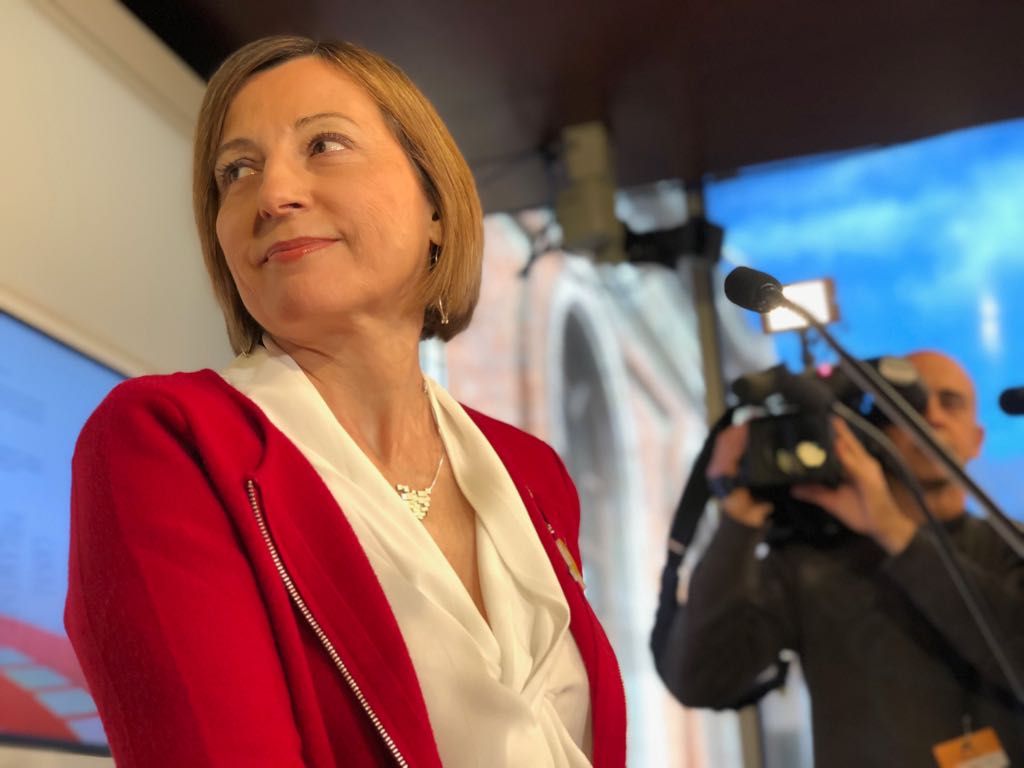The speaker of the Catalan Parliament, Carme Forcadell, under investigation by Spain's Supreme Court for disobedience, rebellion and sedition, has announced that she will not put herself forward for the same role in the new legislature. "The new political moment now requires a new figure, free above all of legal processes", she argued. She said, however, that she is not abandoning politics and will remain a deputy.
The case open against the speaker in Spain's Supreme Court took her on 9th November to a cell in Alcalá Meco prison near Madrid where she spent the night before posting the bail imposed on her. It was the point of maximum tension during a legislature, when the judicialisation of politics crossed through the walls of the Parliament into the chamber's debates.
"The main challenge we've had during this legislature has been to guarantee the sovereignty of the Parliament. For freedom of debate and speech and there to be no place for censorship", she said, blaming this situation on "the Spanish government's phobia" of speech and dialogue.
She said that, despite "the judicialisation, the difficulties, the unforeseen situations and the errors that might have been committed", they've carried out good work at the head of the institution, which hasn't folded to the pressures and stayed strong. "In a Parliament you have to be able to speak about everything. The day we open the door to censorship we cannot close it again", she warned at the same time as saying that all debates taking place in the streets have to be able to enter the chamber.
Forcadell said that this is a personal decision and that she has "always" acted "with the desire to preserve the deputies' right to initiative and freedom of expression" and that before vetoing a debate for fear of reprisals, she would have resigned.
"I can proudly say that we haven't caved it, that we haven't given up and we've stayed strong in our obligations which are to guarantee free debate in this parliament," she said. She went on to thank her colleagues on the Parliament's Board, Anna Simó, Lluís Corominas, Ramona Barrufet and Joan Josep Nuet, all also under investigation by the Supreme Court, for their work.
Despite not having mentioned Cs' and PSC's representatives on the Board, she did thank the chamber's 135 deputies for their work. "Especially those who, even in moments of the highest tension, kept their respect for the institution and its presidency," she added.
The speaker explained that she had thought about the decision and taken it a long time ago and that the necessary people were now informed. She described her time in the role (she took it on in October 2015) as short but intense, and said that it had never been her intention to stay in the role for an excessively long time.

